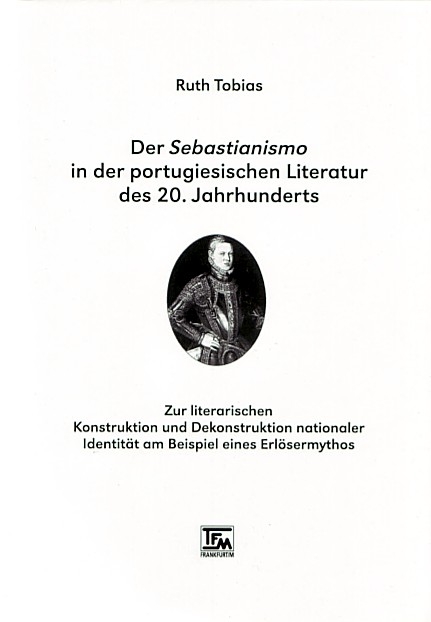
Der Sebastianismo in der portugiesischen Literatur des 20. Jahrhunderts
Zur literarischen Konstruktion und Dekonstruktion nationaler Identität am Beispiel eines Erlösermythos
Seiten
2002
TFM (Verlag)
978-3-925203-88-6 (ISBN)
TFM (Verlag)
978-3-925203-88-6 (ISBN)
Der Sebastianismo, die Hoffnung auf die Rückkehr des 1578 im marrokanischen Alcácer-Quibir verschollenen Königs Sebastião, hat wie kein anderer Mythos die portugiesischen Vorstellungswelten geprägt. Kaum ein Stoff wurde und wird im Land selbst derart kontrovers diskutiert wie der portugiesische Erlösermythos. Der Sebastianismus steht für ein historisches Ereignis, einen messianischen Glauben, eine portugiesische Charaktereigenschaft, einen psychologischen Kompensations-mechanismus, eine politisch-ideologische Diskussionsgrundlage, ein mythisches Deutungsschema nationaler Geschichte und ein Symbol nationaler Identität Die vorliegende Dissertation versteht sich nicht als weiterer Beitrag zu der häufig polemisch geführten Auseinandersetzung mit dem Mythos. Ihr Ziel ist es im Gegenteil, eines der bedeutendsten Elemente portugiesischer Kulturgeschichte anhand seiner Bearbeitung in der Literatur unter wechselnden gesellschaftlichen und historischen Vorzeichen transparenter zu machen. Im Zentrum des Buches steht der Sebastianismus als Identitätsdiskurs in Theater und Roman seit 1930. Behandelt werden dabei u.a. Werke von José Régio, Natália Correia, Manuel Alegre, António Lobo Antunes sowie Almeida Faria. `Sebastianismo`, hoping for the return of the Portuguese King Sebastian, who went missing in the year 1578 in a battle in the Moroccan desert near the city of Alcácer-Quibir, has influenced Portuguese collective imagination (memory?) like no other myth. No other subject matter has been discussed in such a controversial way in Portugal as the Portuguese myth of salvation. ‘Sebastanismo’ is synonymous with a historic event, a messianic belief, a trait of the Portuguese character, a psychological mechanism of compensation, a political and ideological basis for discussion, a mythical pattern of interpreting national history and a symbol of national identity. The intention of the dissertation is not to give one more contribution to the discussion about the myth that are often polemic. Its intention is rather to describe one of the most important elements of Portuguese cultural history on the basis of its appearance in literature in changing social and historical conditions. The present work is focussed on ‘Sebastianismo’ as a discourse of national identity in theatre and novels since 1930. Among others, works by authors like José Régio, Natália Correia, Manuel Alegre, António Lobo Antunes and Almeida Faria are discussed.
| Zusatzinfo | Ill. |
|---|---|
| Verlagsort | Frankfurt am Main |
| Sprache | deutsch |
| Maße | 150 x 210 mm |
| Gewicht | 440 g |
| Einbandart | Paperback |
| Themenwelt | Geisteswissenschaften ► Sprach- / Literaturwissenschaft ► Literaturwissenschaft |
| Geisteswissenschaften ► Sprach- / Literaturwissenschaft ► Romanistik | |
| Schlagworte | HC/Romanische Sprachwissenschaft, Literaturwissenschaft • Portugal • portugiesische literatur • Sebastianismus |
| ISBN-10 | 3-925203-88-5 / 3925203885 |
| ISBN-13 | 978-3-925203-88-6 / 9783925203886 |
| Zustand | Neuware |
| Haben Sie eine Frage zum Produkt? |
Mehr entdecken
aus dem Bereich
aus dem Bereich
Buch | Softcover (2020)
Beuth (Verlag)
19,90 €


